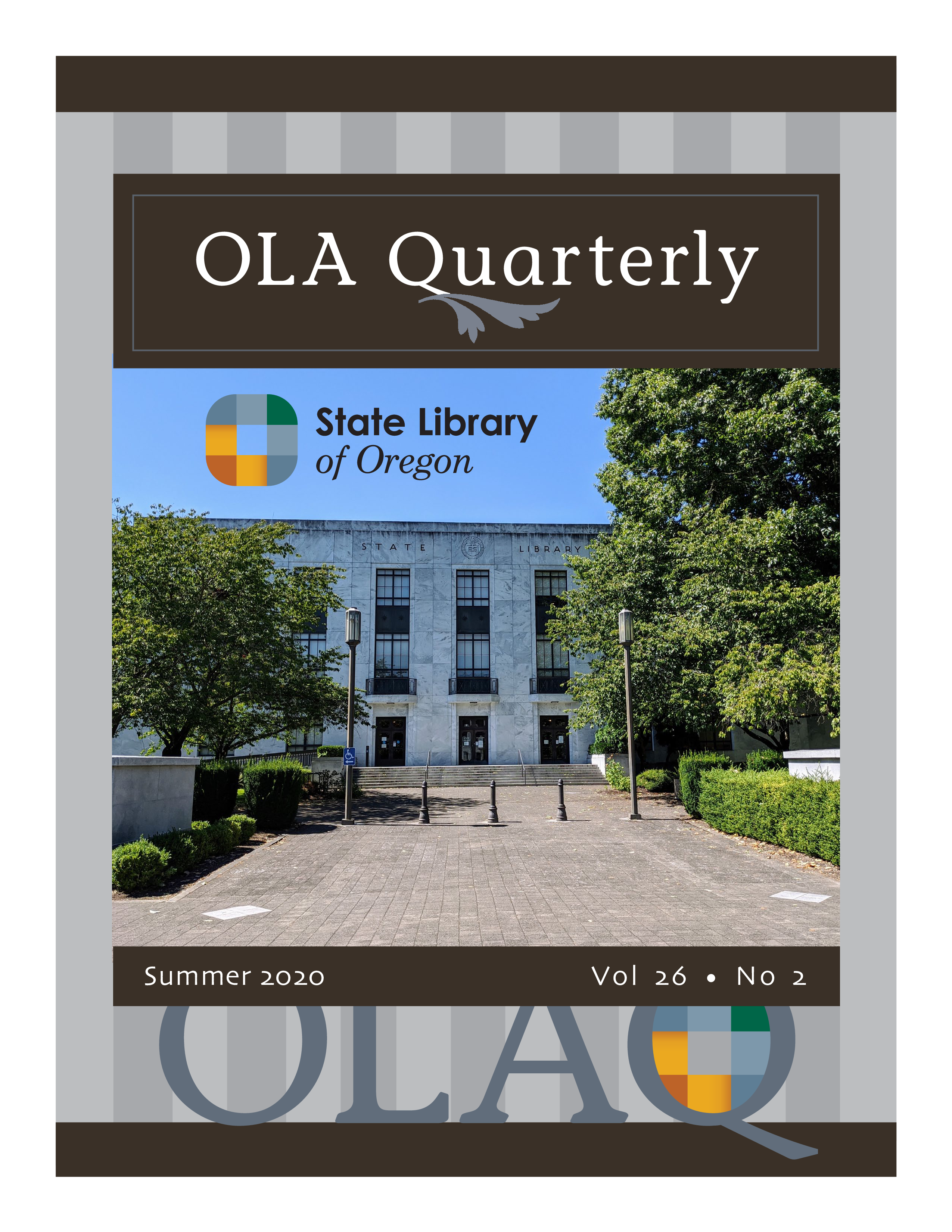Volume 26 Issue 2 Introduction | From the Guest Editor
DOI:
https://doi.org/10.5399/osu/1093-7374.26.02.02Keywords:
Oregon, library, association, Oregon libraries, academic library, libraries, librarians, northwest, information science, information literacy, social media, writing, library trends, books, donors, library funding, Oregon library association, quarterly, Oregon library association quarterly, American library association, ala, ola, reading, library success, success, evolving roles, OSU, Oregon state, University, web services, public, new discipline, changes in libraries, career, careers, library careers, library career, professional journal, scholarly, academic, circulation, Portland, innovative, inventive, solution, oregon librarians, librarian, civics, civic education, inspiring, engagement, role, participation, skills, create, creating, resources, develop, source, evaluate, evaluation, evaluating, collections, community, connecting, communities, history, Oregon State Library, State Library of Oregon, COVID-19, pandemic, Jennifer Patterson, State Librarian, talking book, braille, blind, print disabled, answerland, salem, LSTA, NLS, Library of Congress, National Library Service, Oregon School Library Information System, OSLIS, Ready to Read, embedded librarian, digital collectionsAbstract
This issue of the OLA Quarterly features articles written by State Library staff highlighting the programs, services, and history of the State Library. The State Library of Oregon was established as the Oregon Library Commission in 1905 and renamed as the Oregon State Library in 1913. Today, the State Library of Oregon has three distinct roles:
- The Talking Book and Braille Library serves Oregonians with print disabilities by providing Braille, audio- books, descriptive videos, and magazines through the mail and digital download. This is a free service to eligible Oregonians, with over 5,000 active users and an average of approximately 30,000 items circulated every month. The Talking Book and Braille Library is the regional library in Oregon for the Library of Congress’ National Library Service for the Blind and Print Disabled (NLS) network.
- The Library Support and Development Services Division provides consultation services, professional de- velopment, statewide library services, and state and federal grant administration to libraries across the state. The division administers state-funded Ready to Read grants to public libraries in Oregon to support sum- mer reading and early literacy programs, and administers federal LSTA grant funding as competitive grants and for statewide library services including the Answerland online reference service, the Oregon School Library Information System (OSLIS), and the Statewide Database Licensing Program.
- The Government Information and Library Services Division provides library services to state employees including research assistance, professional development, and instruction. Through the embedded librarian program, each state agency is as- signed a librarian to provide specialized assistance and resources to support state agency staff in their work. The division preserves state agency publications and makes them accessible to state employees and the public through the Oregon Digital Collections website, and reference assistance is provided to the public in utilizing State Library collections and resources.
Articles featuring the work of each of these divisions are included in this issue.
Note: A new version of this article was posted on Nov. 6, 2020, to include the author's updated State Library of Oregon email address.






